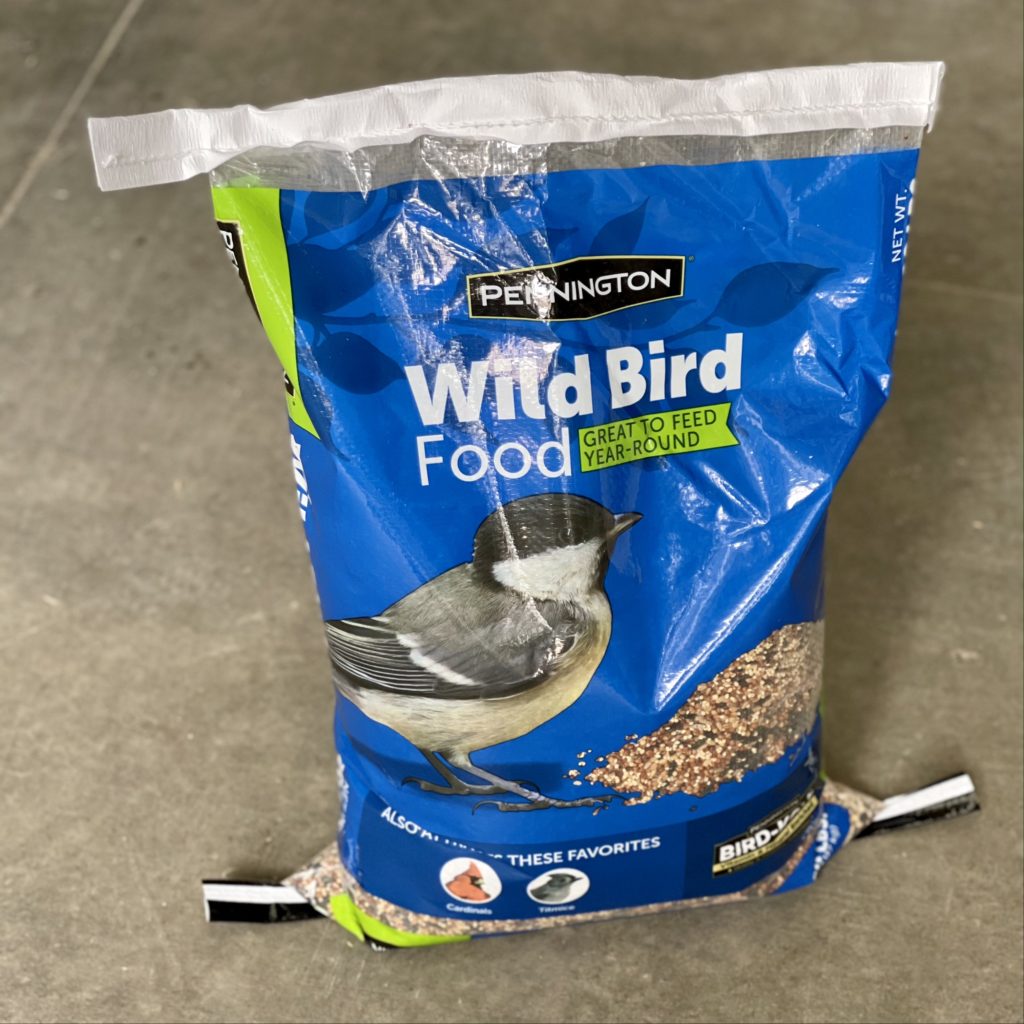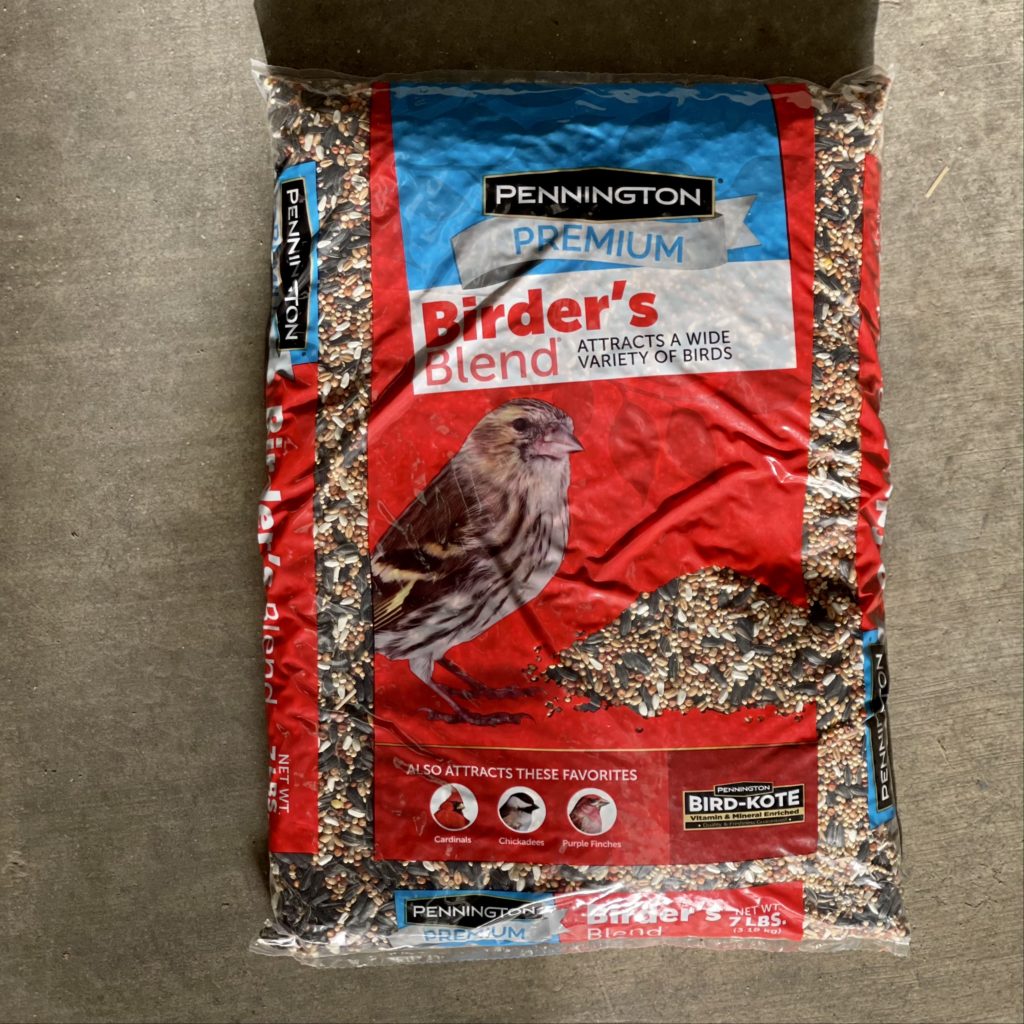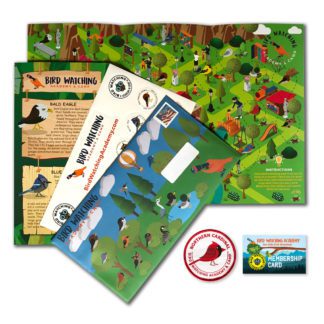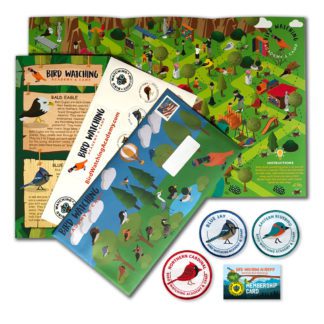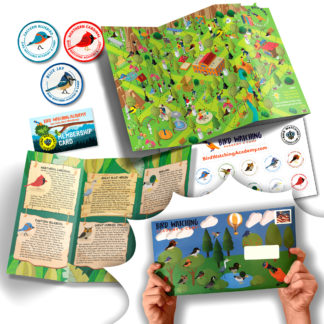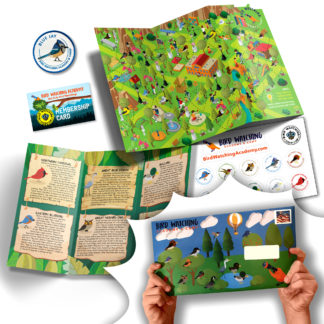
Backyard birders enjoy the company of their feathered friends visiting their yard every day. And while watching these birds circling the house brings happiness, keeping feeders full and giving them what they want can affect their wallet, but with bulk bird seeds, there is a solution!
Knowing how to feed birds while saving on costs is beneficial to birders. The many ways in which they can do that are making their own bird treats, feeding them table scraps, refilling feeders less frequently, offering seed alternatives, or buying bulk bird seeds.
Bulk bird seeds provide greater variety and better savings. Many bulk bird seed suppliers sell premium quality bird seeds at lower prices. Choosing to purchase bulk bird seeds is one of the most convenient solutions to not only save money but time too.
Why Can Bird Seeds Get Costly?
Bird watching does not have to necessarily be an expensive hobby if a proper budget is set and precautions are taken. One of the most common reasons birders feels the burden on their finances is the wastage of bird seeds. Birds flock around feeders and eat to their heart’s content but not everything. This usually results from using cheap bird seeds, which birds may refuse to eat or leave more bird seeds in the feeders than required.
Another factor influencing costs is getting more feeders than needed, particularly if you are new to backyard bird watching. Birders do not need as many feeders for the birds because they can also scatter the seeds on their lawn.
The increasing costs of bird seeds depending on the economy or seasonal changes can cause them to spend way more than necessary on backyard bird watching. This is one instance where buying bulk bird seeds can be beneficial because the seeds can be used in the future too if stored properly.
Other factors that increase the size of costs include the amount of time they have been feeding the birds, the kind of seeds they buy, and where and how they buy them.
Why is Bulk Bird Seed Better?
In bird seed stores or wild bird supply stores, most bird seed mixes and straight seeds are available in various sizes of bags, with larger bags usually having a lower cost per pound. This also means that birdwatchers have seeds on hand at all times and that they do not have to buy seeds as much.
At the same time, if they just need a small amount of seed for a small feeder, bulk buying allows them to get precisely what they need rather than wasting money on seed which could rot after a while. The bulk wild bird seed bags are normally 40-50 lbs, and the price is less than half of what they would pay for seeds in retail stores. Furthermore, several online retailers that sell it in bulk will ship it for free.
Where To Buy Bulk Bird Seed From?
Bulk bird seeds are readily available everywhere, but birders who want to provide the best foods for their backyard birds should look at various places to buy bird seeds in order to benefit from higher quality seeds, a wider range of seeds, and lower prices on bulk bird seeds. The two ways in which bulk bird seeds are sold are in local stores and online.
Buying Bulk Bird Seeds in Local Stores or Supermarkets
Bird seed stores and supermarkets are one of the most convenient places to buy bulk wild bird seeds. If backyard birders run out of bird seed or are in need of specific bird seed, or if a new species of bird with a different feeding habit chooses to stop by, they can easily get it from these stores. Buying bulk bird seeds from local stores is also a great way to support local businesses, and birders can save a hefty amount that goes towards delivery and shipping charges.
Choosing to purchase bulk bird seeds has many advantages for anyone looking to buy them from stores. They should check to see if the seeds have been properly stored and are still fresh, as well-kept seeds can last for months.
Another reason to buy from local stores is that they serve their customers well and will ensure that they supply them with high-quality bird seeds. Bird seed suppliers may also assist birdwatchers with loading and unloading bulk bird seeds when placed in a big order. Even though bulk bird seed shops are not that difficult to find, it is best to make an effort to buy from those that can be trusted and are authentic.
Local stores that sell bulk bird seeds include grocery stores, pet stores, gardening centers or nurseries, specialty wild bird supply stores, and home improvement stores. Multiple local stores sell different seed varieties, and prices will vary based on each store’s current sales, discounts, wild bird seed sales, and special offers.
Buying Bulk Bird Seed Online
Bulk bird seed sellers who sell online usually have more comprehensive bird seed choices that include exclusive blends, a selection of varying quantities, and premium quality products.
They may also sell higher-quality bird seed than what may be found in certain local supermarkets, and shipping fees may be waived, or a discount may be offered based on the amount of bulk bird seed bought. On the other hand, birders who buy bird seeds online must wait for them to arrive, and the cost of small amounts of seed can be considerably higher compared to seeds bought from stores.
The delivery or shipping charges, discounts, offers, wild bird seed sales, stock, and variety of bird seeds of each online bulk bird seed seller vary according to many influencing factors like distance and seasonal crops. Birders should shop around before making a decision because prices, deals, and availability will all change at any time.
Online reviews will assist birdwatchers in determining which bulk bird seed supplier to buy from. Before they place an order, it is helpful to know what other customers think about the goods and services they received. Naturally, they can go for bird seed suppliers who have the best ratings and recommendations.
Which Bird Seeds to Buy in Bulk?
Deciding on which bulk bird seeds to stock up on can be a difficult one for birders since different birds feed on different seeds. It is important to research and experiment on what birds visit their backyards often and what they like. Other important details to consider are the nutritional value of each bird seed type, what birds it will attract, and the types of seeds birds rarely eat.
Depending on these factors, the best bulk bird seeds birders can buy are:
Black Oil Sunflower Seeds
Birdwatchers can attract dozens of different bird species to their yard by using this one bird seed type in their feeders. Black oil sunflower seed for birds is the best all-around seed for feeding because it is rich in energy and fat.
Winter feeding necessitates a higher energy content, so the birds convert the calories into energy, which keeps them warm in the cold. Black oil sunflower seeds for birds have small shells that are easy to break open, making it a favorite food of a wide range of songbirds, including Finches, Sparrows, Cardinals, Chickadees, and Nuthatches.
Hulled Sunflower Seeds
Hulled sunflower seeds are the perfect bulk bird seed option for convenience, reduced costs, and happy birds. These seeds are also called sunflower meats, chips, or hearts. They are the same as the black oil or striped sunflower seeds, excluding the outer shells. Birders often choose hulled sunflower seeds because they do not germinate in their gardens.
Hulled sunflower seeds are the best bird seed for finches because their bills are not strong enough to crack off thick hulls, so these seeds are easier for them to consume. Other backyard birds that eat sunflower hearts are Woodpeckers, Grosbeaks, Chickadees, Mourning Doves, Nuthatches, and Sparrows. Many birds who visit feeders may try hulled sunflower seeds, and once they know how easy the seeds are to devour, they will quickly empty the feeders.
Nyjer Seeds
Birders buy this bulk bird seed because it has a high oil content, making it a desirable seed and an ideal energy source for birds. However, due to its small size, the seed is only limited to special Nyjer feeders. The precious American and Lesser Goldfinches, as well as the Pine Siskin, are drawn to Nyjer seeds. Other birds that enjoy Nyjer seeds include Mourning Doves, Buntings, Song Sparrows, Quails, and Dark-eyed Juncos.
Wastage of Nyjer can be avoided by buying what the birds need in a month or two, as the oil is what birds love. Nyjer is susceptible to drying out, particularly in the dry climate, and when this happens, birds will avoid it. So, make sure you buy Nyjer seeds in bulk, ensure you store them properly!
Safflower Seeds
Safflower bird seed is an excellent wild bird food due to its high oil, protein, and fat content, equivalent to or even exceeds that of black oil sunflower. Though safflower may not be the first seed option for birds accustomed to more familiar foods, they may grow fond of it once introduced. Songbirds such as Finches, Titmice, Nuthatches, Cardinals, and Grosbeaks enjoy safflower seeds.
The best characteristic of these seeds is not the birds that consume them but the birds that avoid eating them. Safflower bird seeds have a bitter taste and a different appearance than other bird seed varieties, so Grackles, Blackbirds, and European Starlings will usually avoid them. Many squirrels dislike safflower seed and may not bother feeders with safflower; hence buying it as a bulk bird seed is a profitable decision.
White Proso Millets
This pale tan or whitish lightweight seed is of great value as a bulk bird seed since one bag contains much more seeds than an equal-sized bag of larger seeds like sunflower or safflower. Millet is also an important source of feed for backyard birds.
Many birds, including both large and small species, enjoy millet, like Finches, Juncos, Towhees, Cardinals, Pine Siskins, Buntings, and Sparrows. It’s also a necessary offering because certain songbirds can’t break sunflower shells efficiently.
How to Store Bulk Bird Seed
A lot of care and effort should be taken to store bird seeds bought in larger quantities so that they do not go stale. Bulk bird seeds should be stored in a clean, dry, and secure place so that other wildlife creatures don’t get to them.
Firstly, make certain that the seed you buy is suitable for storage. The seed should be dry and free of mold, flies, or other spoilage indications, and the bag should be free of condensation, which may indicate mold or mildew. Discounted seed may have been on store shelves for several weeks or months, and if in bad condition, may not be able to be stored for much longer.
For storing bulk bird seeds, containers made of galvanized metal or heavy-gauge plastic are ideal. Rounded corners discourage rodents, and airtight lids hold moisture out and limit the chances of contamination to a minimum. Containers should be big enough to accommodate a full bag of seed but compact enough to be quickly transferred if needed. Many birders have the majority of their seed in large containers but keep a limited amount in smaller containers on hand for fast feeder refills.
Seed containers should be checked for leakage, damage, or insect infestation frequently and sifted through carefully to detect any strong odors, insects, or clumps that may indicate a problem. Birders should use the oldest seeds first to ensure that the seed is regularly rotated and kept fresh throughout.
Final Words
Feeding birds can become costly when there are several feeders and scores of birds visiting a backyard buffet. Stocking up on bulk bird seeds is a smart way to cut costs, and correctly storing the seed will guarantee that savings don’t go to waste.
Buying bulk bird seeds is one of the cost-effective ways that birders can enjoy backyard bird watching without worrying about the money that feeds their feathered visitors.
You can set goals to bird-watch after you have placed your bulk bird seed in your backyard and record your results.



